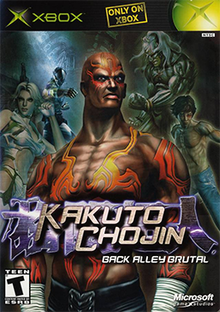
[Game Translation] Why Local Culture Is Important for Game Localization
Disclaimer: The articles featured on this blog have been translated from Korean and are based on Korean gaming industry standards.
Greetings. We are Latis Global Communications, a localization company specialized in games.
Our company has game experts working on localizing games to allow gamers all over the world immerse themselves into the game with ease.
When releasing a game on a global scale, how would you prevent gamers from feeling uncomfortable or alienated by cultural aspects in the game?
One way is to localize the game.
The dictionary defines “localization” as the process of making something local in character or restricting it to a particular place.
In other words, it is a procedure of converting goods or services to fit the local culture.
Today, we are going to focus on how to localize games to fit the local culture.
# Why Games Must Go Through a Localization Process

The main purpose of games is to give joy. There are many other factors for it to become a popular game, but above all else, a game must be fun to play.
Let’s pretend that you’re a game developer. You have succeeded in creating a game that is very well received by gamers in your country. What will you do next?
You will most likely release your game on platforms such as the Google Play Store, App Store, and Steam to be enjoyed by gamers of various countries.
However, releasing a game to another country means you must be able to deliver the game’s fun and value to the target audience in their language.
This is a challenging and difficult procedure. Not only must you replace the text, but you also have to change the content to correspond with the target audience’s culture and ideologies, and recreate it to something more appropriate. If this process is ignored, we can expect many issues to occur.
# Why Cultural Aspects Must Be Considered During Game Localizations

(1) To Prevent Cultural Conflicts
One notable example of a game disregarding local culture and creating conflict is the video game Kakuto Chojin.
In 2003, Kakuto Chojin, which was released for Xbox, halted all sales and initiated a global recall due to religious conflict.
The main reason for Kakuto Chojin’s recall was its background music (BGM). The BGM had contained part of the Qur’an, which should have been deleted prior to its release due to its potential to create customer backlash and even larger issues.
But unfortunately, this didn’t happen and products including the music were sold. What followed was a great deal of complaints that led MS to recall the game internationally.
This case shows us the importance of cultural localization. Releasing a game without foreknowledge of a specific culture may create conflicts, and eventually lead to great losses.
It is not just financial loss. The trust that gamers have for developers and the brand value are something money cannot buy. When these are lost, it will take a lot of effort and time to rebuild it.
# Why Cultural Aspects Must Be Considered During Game Localizations

(2) For the Sake of the Game’s Fun
The case above shows that when localizing games, the country’s cultural aspects must be considered to avoid cultural conflicts. When localized according to the target audience’s culture, the game’s fun and characteristics can be conveyed properly.
For example, let’s assume there is a game containing the following dialogue.
- We must place the ferry fee for Charon so safe passage across the river is ensured.
- I hereby take an eternal vow with you, upon the river Styx.
Some may read those two lines and think that a funeral is being held and the ferry fee is to be buried with the body so that Charon (ferryman of Hades in Greek mythology who carries the souls of the deceased across the river) will grant safe passage to the dead.
Others may realize that a vow upon the river Styx must mean that it is an important oath. But to know this, knowledge of who Charon is and what meaning the river Styx holds is required. Those who do not know must search for these information, and may feel frustrated enough to quit the game.
If you release a game assuming that there are many gamers with great understanding of another culture, then there are bound to be those who become disgruntled by the game’s difficult to understand content.
It is for this reason that explanations based on cultural characteristics or replacing expressions to those that are relatable to the local gamers is necessary.
When a native speaker reviews and/or proofs the content, the expressions used in the game can be changed to those that are more relatable to the target audience. This also has the benefit of conveying the game’s intended entertainment elements.
From the cases above, we have learned that focusing on the culture aspects is especially important when localizing games.
In our next post, we will be looking into what a linguist (reviewer) in our localization team does. Stay tuned!

Our extensive knowledge of video games helps us to deliver superior gaming services.
We are a team made up of game specialists who fully understand and love video games.
We provide our clients with the highest quality gaming services for all types, platforms, and genres of video games. With considerable knowledge and experience, we support global video game developers and publishers for their successful launch.

